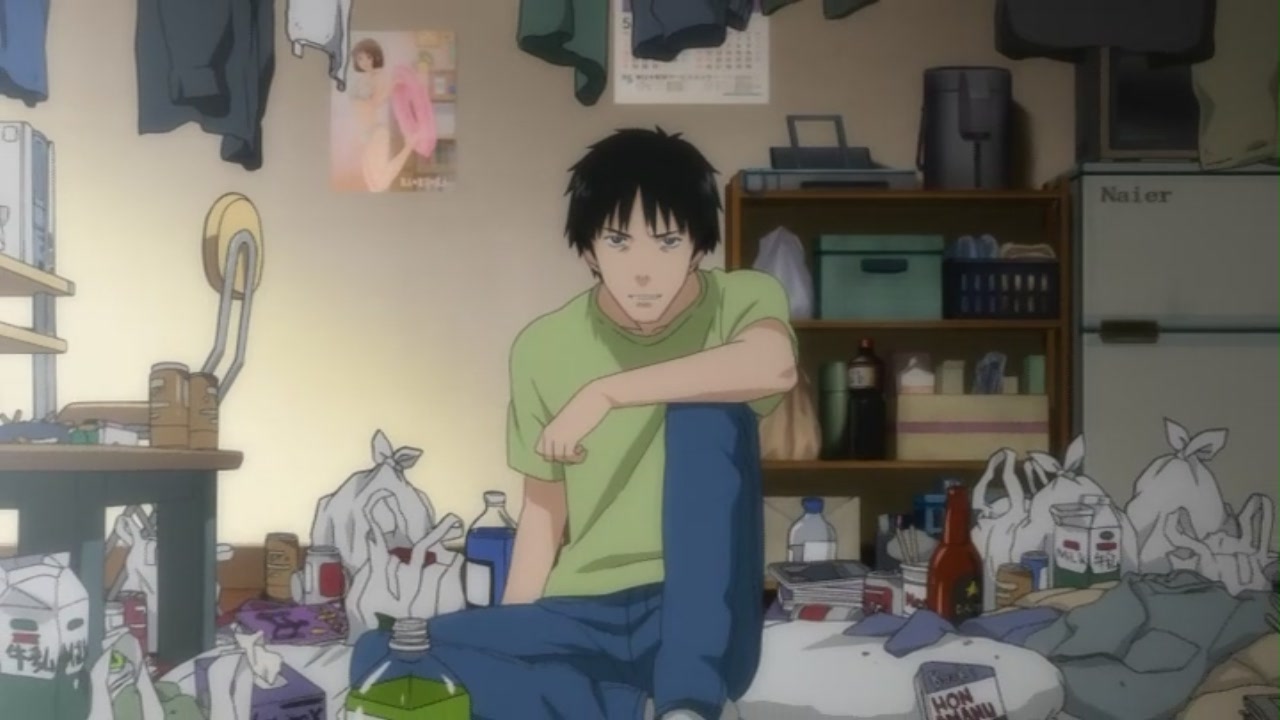What does the word “anime” mean to you?
When I first brought up the idea at a Halftime meeting, most of the other benevolent contributors of this blog gave me a polite but bemused look. What could I possibly talk about for a sub-genre of cartoons? It was an exotic topic, and unlike other television shows like Scandal or House of Cards, I couldn’t really go around and ask people casually whether they had caught up on the latest episode on Netflix and Hulu.
Once upon a time, or more like two years ago, the word “anime” did not have the best of meanings for me. Anime meant Pokemon, a show where silly young children would flick around little red balls and let their mythical imaginary characters square off in modern-day digital rooster fights. There was also Dragonball Z, which involved a cast of overly muscular men who seem to be participating in an unending contest to see who can contort their mouths the most and all desperately require the attention of a competent hairdresser.
No wonder that I can’t go around Georgetown brandishing my guilty pleasures on a Thursday night or that I can find Scandal watch parties on Facebook but not Naruto watch parties. If I had to choose between watching Frank Underwood’s schemes or angry protagonists and antagonists engaging in a battle of exchanging poorly-composed dialogue against a dramatic background over half a dozen episodes, I would probably choose Frank Underwood.
Is it embarrassing to still be watching anime in college? I think the answer is less about embracing your inner self – that, granted, is important – but more about realizing that there is a lot you could probably learn from watching anime that I never realized before. Because anime – you guessed it – is a lot more than cartoon violence and fantasy characters.
Welcome to the NHK is probably the most salient series that gets my point across. A story that weaves the lives of multiple troubled individuals together, its protagonist, Tatsuhiro Sato, has dropped out of college and shuts himself from the world in an apartment in a Tokyo suburb. No longer able to socialize with other individuals, he is what is known in Japanese as a hikikomori, a person who has halted training or employment and is basically living off his or her parents’ allowance and food from the nearby convenience store.
He gradually becomes delusional, and his apartment’s appliances tell him that he is the target of the Japanese Hikikomori Society (Nihon Hikikomori Kyoukai, or NHK), a sinister conspiracy that aims to turn young adults like him into anti-social, reclusive individuals. Throughout the story, a mysterious young girl called Misaki offers to nurse Tatsuhiro out of his hikikomori status by offering him nightly lectures in a park, else he face a one-million yen penalty.
The tragic beauty of Welcome to the NHK is that every character is vulnerable. Tatsuhiro’s friends and parents fall into self-destructive suffering, alienation, depression, suicide, and poverty. Tatsuhiro himself embodies the most awful qualities of a hikikomori. He is clearly sexually deprived, but he finds that he can only arouse himself by browsing through JPEG files of pornography on a disc, conversing with women (or at least, those who he thinks are women) in MMORPGs, or by peeking above the plastic skirts of plastic figurines. he prospect of interacting with anybody in the flesh scares him. Misaki grapples with an abusive stepfather and struggles to finish high school alone while she waits in the nearby park for Tatsuhiro to come to her first lecture day after day after day.
The sorry state of every character you meet drives the show to unravel the hidden problems in Japanese society. Men are attracted to digital misrepresentations of women in erotic games rather than real women. Individuals with mental health issues cannot afford the crippling social cost of going to seek formal counselling as they fall out of the unending rat-race of school and work. If an adult like Tatsuhiro had to choose between staying on the crowded escalator towards employment or dropping out onto the cushion of the monthly allowance and single-person apartment that his parents are providing him, surely that adult, alienated from the unwanted pressures of participating in Japanese society, would choose the latter, privileged, more comfortable option.
Putting the diverse cast of characters together and watching Tatsuhiro struggle to reform himself creates perhaps one of the most frustrating yet human stories that one can find in anime. The perversion and frustration in the characters are raw and they take drastic measures they take to end their misery, sometimes literally.
My point is that you’ll probably find an animated series from Japan that will shock and move you. There’s a lot more to anime than the standard cartoon violence tropes, if you know where to look.
That’s what anime means to me.
Photo: vignette2.wikia.net





